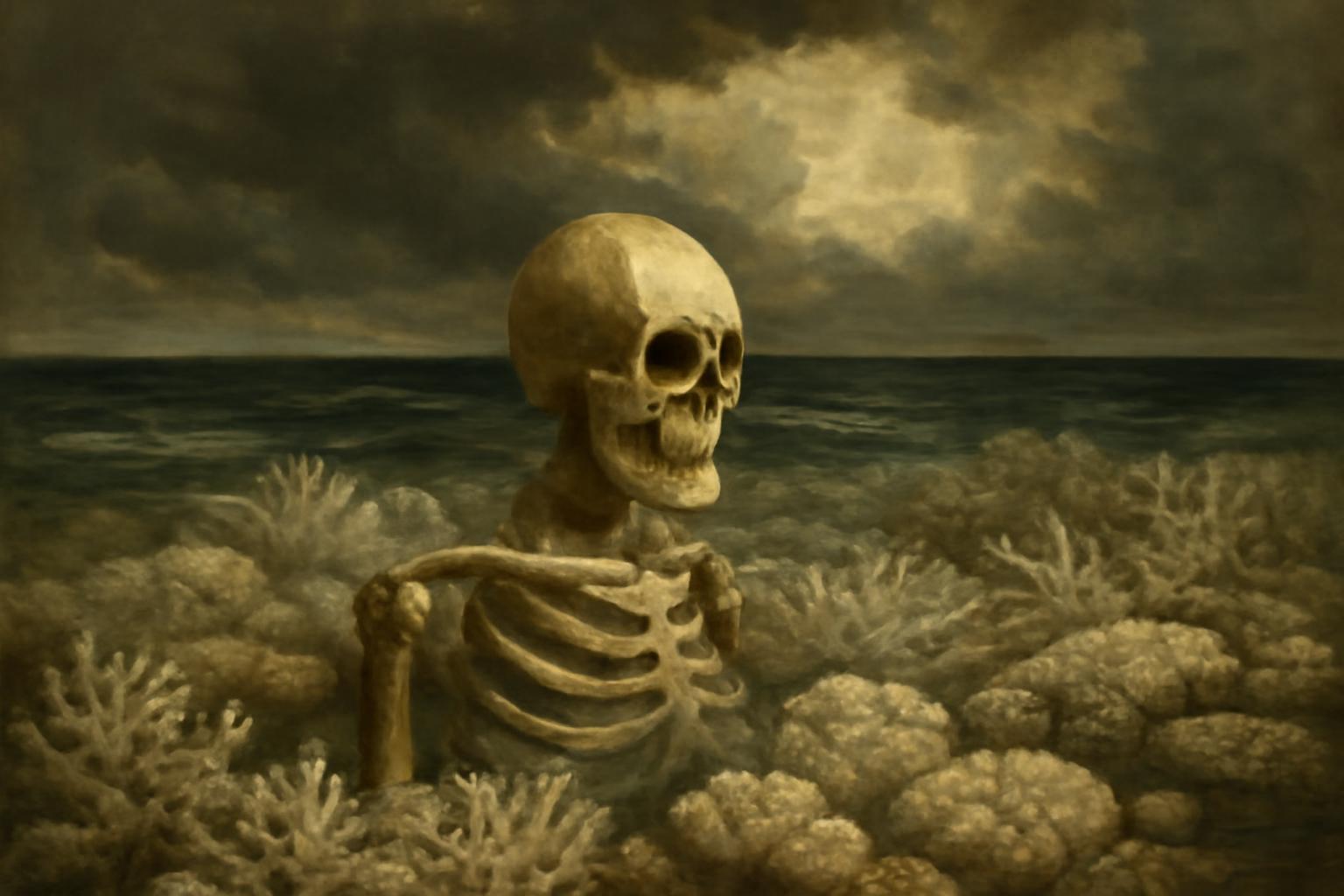Bleached and pallid, the Great Barrier Reef now recites the somber poetry of death, a keening echo of oceanic grandeur slipping from vibrant glory into spectral ghostliness. Within its labyrinthine coral halls, the riot of colors once flourished like Schiller’s idealized chorus, an aquatic symmetry hinting at Apollo’s wisdom and Dionysian fervor—now fractured, exposed to an indifferent sun whose hot summers, relentless and faithless, gnaw away at life as some modern Cronus devours his newborns. The stony skeletons of coral, exiled from their vital, symbiotic companions, tell a tale not only of natural science but of the hubris of civilization, its promethean trespass, its will-to-power unrestrained, birthing the suffocating fever of a sick earth.
Local keepers of this marine cathedral—modest Hephaesteans forging livelihoods atop the ruins—witness each whitening as a private tragedy enacted upon a stage too vast for tears or protest. Like tragic Antigone, they plead for the recognition of sacred laws, the inviolability of the natural order, yet their voices are subsumed in the cacophony of commerce and convenience. The numbers narrate a chilling fate: in the north, a quarter of the reef’s brilliance extinguished in a fraction of a human lifetime; the south and center not spared, the erosion of being advancing as methodically as Mephistopheles’ calculation.
Warming seas, invasive starfish, and the ceaseless storm—these are the furies set loose by our own excess, the unwholesome fruits of human striving. All the while, the reef, more than mere ecosystem, stands as the last, embarrassed miracle of Western optimism—a unity of beauty and function, now pitted against an age whose gods are only efficiency and profit. As economic insecurity grows, a siren chorus urges us to treat nature as mere asset, reducing sublime complexity to currency and balance sheet.
Nietzsche would have recognized in this decline the completion of nihilism: the devaluation of the highest values, when all horizons recede, and Dionysus weeps in his cave. Tragedy is not merely in the reef’s death-throes, but in our inability to mourn: faithless heirs, we who have exchanged reverence for calculation, under whose watch even the world’s ancient wonders become casualties of our unceasing appetite for more.
Can even a mighty reef resist the flame of our self-consuming will? Every “ton avoided,” every “fraction of a degree spared,” is a mute, desperate prayer—yet are we capable of the acts of renunciation necessary to redeem what remains? Or must we, like Cassandra, prophesy doom to ears grown deaf in the waning of Western dusk? The spectacle of the reef’s bleaching is our ecce homo, the living monument to a civilization come to mourn itself, too late.
